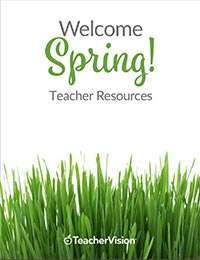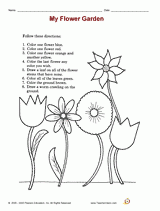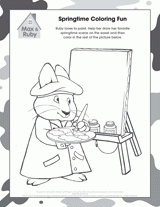Use a School Readiness Activity to provide early language thinking experiences for preschool children that will prepare them to do well in the early grades.
Grades:
Subjects:
Beginning Sounds
Purpose/Skills
- To listen to, say, and match initial sounds in words
- To build vocabulary
Materials
None
listen
sing
sound
beginning
same
different
Literature Suggestion
Read Can I Keep Him? by Steven Kellogg, or another picture book.
Warm-Up
Ask the children to get ready to use their ears and voices. Say a sentence that hasalliteration (two or more words in a phrase with the same beginning sound), using names of children in the group. For example: Peter puts pepper on pancakes; or Cathy can cook carrots. Have the children repeat the sentence. Talk about the beginning sounds.
Procedure
- Read the book and choose some words that are important to the story. Help children practice listening to beginning sounds. For example, help children say the name for each animal that Arnold wanted to keep, and the beginning sound of each animal name. (Examples: dog /d/, kitten /k/)
- Tell children that you are going to play a listening game. They will need to listen and think of words whose beginning sounds match the sounds you make.
- Say /m/ and ask the children to repeat it.
- Then say words that begin with that sound: mat, me. Exaggerate the initial /m/ so that they hear it clearly.
- Have children repeat the words mat and me.
- Ask them to offer words that begin with the same sound. Encourage and support the children's attempts. Silly words are okay, if they match the initial /m/. (Examples: milk, mupples, miffy, mighty, muffins)
- Try the sequence using other letter sounds.
- Teacher Tip: Encourage children to look around the room for ideas of words that begin with different sounds.
Enrichment
Once children are successful at matching initial sounds, play an initial sounds guessing game. For example, say: I'm thinking of something that begins with /s/. Children may guess items in the room such as scissors or sneakers.
Observation Assessment
- Proficient - Child listens, repeats the examples accurately, and offers words that have matching initial sounds.
- In Process - Child has difficulty paying attention, but repeats sounds and matches initial sounds quite accurately.
- Not Yet Ready - Child does not yet repeat the sounds, or makes major errors in attempts to match initial sounds.












